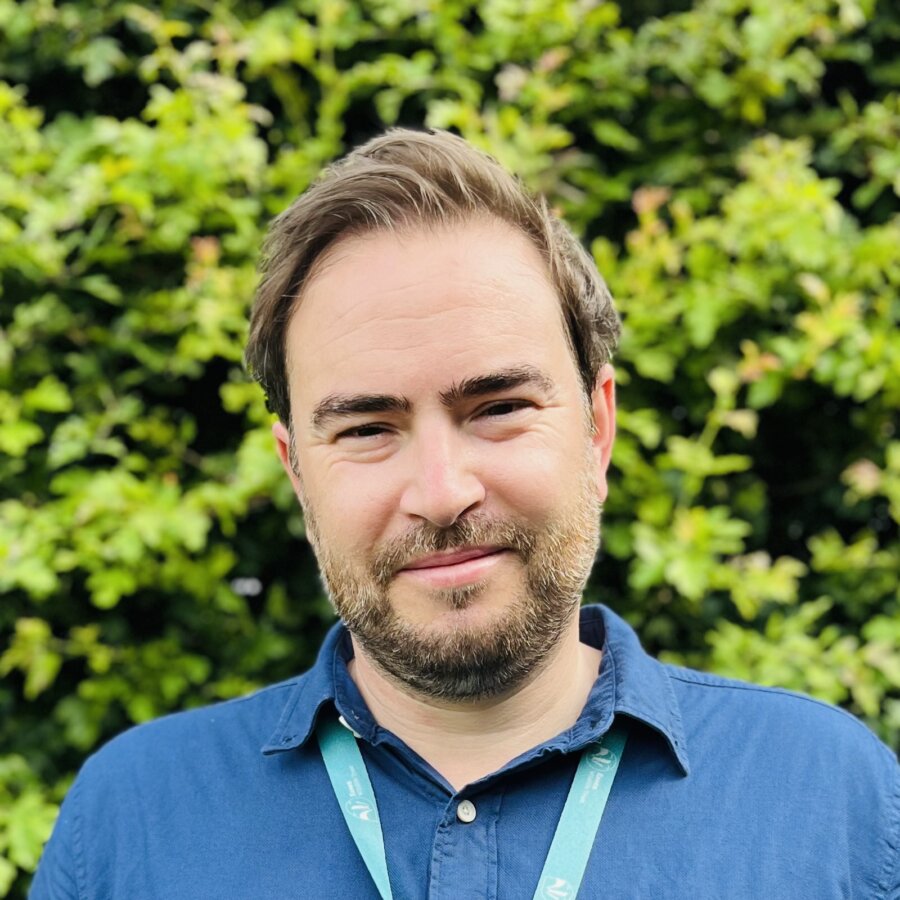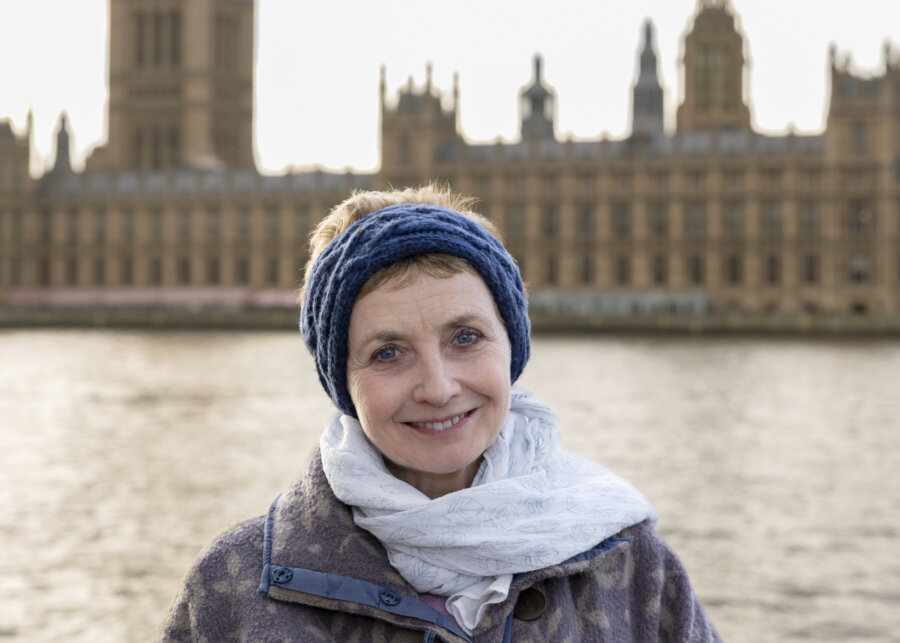A long-time Suffolk resident, Martha Kearney holds a profound love for the countryside and regularly walks at Redgrave and Lopham Fen, a wetland landscape owned by the Suffolk Wildlife Trust. Since stepping down from The Today Programme last year, she has focused more deeply on nature, continuing her work with BBC Radio 4 through Open Country and This Natural Life. In This Natural Life, Kearney meets guests such as Cate Blanchett, Martin Clunes, and Hugh Fearnley-Whittingstall at meaningful outdoor locations where they reflect on nature and its impact on their lives. Her passion for the natural world is further demonstrated in her television work, including The Wonder of Bees and The Great Butterfly Adventure, as well as her live reports from Antarctica and the Arctic for Today, where she covered scientific research in remote environments.
The day will feature an inspiring series of panels and discussions exploring the profound connections between nature, literature, and wellbeing. Attendees can look forward to engaging talks on Britain’s birdlife and the vital role these creatures play in our ecosystems, alongside thoughtful explorations of how immersion in the natural world supports mental health and personal restoration. The programme will also examine practical approaches to nature campaigning and environmental advocacy, empowering participants to become agents of positive change.
I’ve been coming to Latitude for close to 20 years and love the way the festival has always celebrated writing as well as music. It will be brilliant to introduce so many talented nature writers to a broader audience. – Martha Kearney
Featured Writers
Nick Acheson is a naturalist, conservationist, nature presenter and writer based in Norfolk, living in a flint cottage by a duckpond beside the River Wensum. He has worked with wildlife across every continent and is the author of The Meaning of Geese, which won the East Anglian Book Award. During the 2020–2021 winter lockdowns, Acheson undertook a remarkable journey, cycling 1,200 miles alongside migratory geese visiting North Norfolk from Iceland and Siberia. His work reflects a deep commitment to climate, biodiversity, and ecotourism, which has led him to give up flying. His blend of ecological insight and personal experience highlights the fragile beauty of the natural world.
Ian Collins is a distinguished writer and curator with a long-standing career as an arts writer for the Eastern Daily Press. He has authored numerous biographies and monographs, including the Runciman Award-winning John Craxton: A Life of Gifts and James Dodds: The Blue Boat, which won the Creative Suffolk Author Award. Collins has worked with prominent institutions such as the Aldeburgh Festival, Sainsbury Centre in Norwich, British Museum, Yale Center for British Art, Benaki Museum in Athens, and Meşher Istanbul. His extensive body of work includes a trilogy on East Anglian art and monographs on artists John McLean, John Craxton, and Jeremy Gardiner. He splits his time between Suffolk and Greece, bringing broad cultural perspectives to his writing.
Rich Yates has been CEO of Essex Wildlife Trust since April 2019, having spent much of his career in the university sector across research, organisational development, marketing, and communications roles. As CEO, he leads the Trust’s Strategic Leadership Team and reports to the Board of Trustees, guiding efforts to protect wildlife and inspire a lifelong love of nature. Previously Director of Engagement, he focused on widening access to nature and encouraging people across Essex to take action for wildlife and wild places. Raised in rural Essex, Yates studied environmental science and business at college, holds a bachelor’s degree in ancient history and a master’s in literature specialising in psychogeography and nature writing. He is a trained coach and a proud trustee of Froglife.
Mary Colwell is an author, producer, and nature campaigner. As Director of Curlew Action, her 2016 UK-wide walk raised the profile of the endangered curlew and inspired her influential book Curlew Moon. She has authored four books, including John Muir: The Scotsman Who Saved America’s Wild Places, Beak, Tooth and Claw: Living with Predators in Britain, Curlew Moon, and The Gathering Place: A Winter Pilgrimage Through Changing Times. Her writing appears in The Guardian, BBC Wildlife Magazine, The Tablet, and Country Life. Colwell has produced documentaries for the BBC Natural History Unit and received numerous awards, including a Sony Radio Academy Gold Award, the David Bellamy Award, the WWT Marsh Award for Conservation, the BTO Dilys Breese Medal, the RSPB Medal and, most recently in 2024, the Zoological Society of London’s Silver Medal. She chairs the government-supported Curlew Recovery Partnership England.
Melissa Harrison is a novelist, nature writer, podcaster, and children’s author widely regarded as one of Britain’s leading contemporary voices in nature writing. She contributes a monthly Nature Notebook column to The Times and writes regularly for the FT Weekend, The Guardian, and New Statesman. Her debut novel, Clay (2013), was followed by At Hawthorn Time (2015), shortlisted for the Costa Novel Award and longlisted for the Women’s Prize for Fiction. Her non-fiction Rain: Four Walks in English Weather (2016) was longlisted for the Wainwright Prize. Her third novel, All Among the Barley (2018), won the UK’s European Union Prize for Literature and was named a Waterstones Paperback of the Year as well as Book of the Year by The Observer, New Statesman, and The Irish Times. Set on a Suffolk farm between the world wars, it offers a timeless rural story with sharp modern relevance. Harrison is also acclaimed for her children’s books.
Patrick Barkham is one of the nation’s most celebrated nature writers and the natural history writer for The Guardian. Born in Norfolk and educated at Cambridge, his fascination with butterflies began in childhood and culminated in 2009 when he saw all 59 British butterfly species in a single summer, an experience he chronicled in The Butterfly Isles. His other books include Badgerlands, praised by Chris Packham as “a must read for all Britain’s naturalists”, Coastlines, a history of coastal conservation, Islander, and Wild Child: Coming Home to Nature. Barkham also edited The Wild Isles, an anthology of British nature writing. His latest book, Wild Green Wonders: A Life in Nature, offers a vivid portrait of contemporary wildlife, chronicling environmental changes and the urgent challenges facing nature’s future. The book was longlisted for the Wainwright Prize. Barkham has been shortlisted for the Wainwright Prize and twice for the Ondaatje Prize.
A special focus will also be given to the work of the late Ronald Blythe, one of Suffolk’s most cherished literary figures, whose book Akenfield remains a landmark reflection on English rural life. The day will include reflections on Blythe’s deep-rooted connection to the Stour Valley and his home at Bottengoms Farm.
Through these conversations, the event will explore how literature, place, and nature interweave to shape both individual well-being and a shared environmental consciousness.


